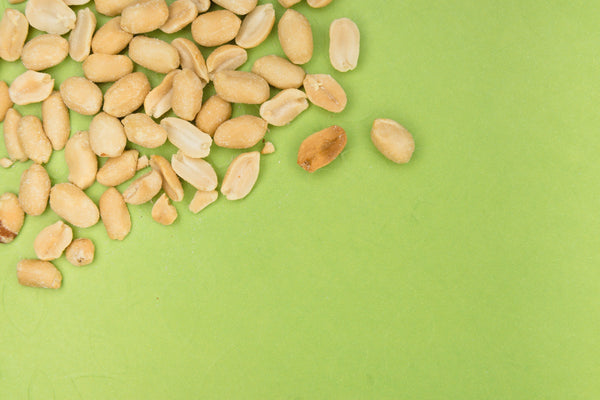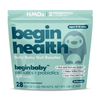How Does Diet During Pregnancy Help With Your Baby’s Health?
share this article

The food you eat during pregnancy does more than just nourish your body, it plays a critical role in shaping your baby’s health, development, and even their future gut health. Nutrition during pregnancy lays the foundation for your baby’s growth, immune system, and microbiome, starting before they’re even born.
Here’s how diet during pregnancy supports your baby’s short- and long-term health and why small nutrition choices can have a big impact.
1. Supports Organ Development and Growth
Your baby’s organs, brain, bones, and nervous system are built from the nutrients you provide. Key nutrients like protein, omega-3 fatty acids, iron, zinc, and folate are essential for:
-
Healthy brain development
-
Formation of the nervous system
-
Growth of the heart, kidneys, and lungs
-
Formation of red blood cells and DNA (1)
2. Builds a Strong Immune System
A well-nourished pregnancy supports the development of your baby’s immune system. Nutrients like vitamin D, zinc, and antioxidants from fruits and vegetables help shape how effectively your baby’s immune system will function, both at birth and later in life (2).
3. Shapes Your Baby’s Gut Microbiome
Emerging research shows that your diet during pregnancy influences the bacteria your baby is exposed to, starting in the womb and continuing through birth. A diverse, fiber-rich diet supports a healthier maternal microbiome, which helps seed your baby’s gut during vaginal delivery or skin-to-skin contact (3).
Foods rich in prebiotics (like oats, bananas, legumes, and onions) help feed beneficial bacteria, improving your microbiome and supporting your baby’s gut health right from the start.
4. Reduces the Risk of Allergies and Chronic Disease
A diet high in fiber, fruits, vegetables, and healthy fats has been associated with a lower risk of your baby developing:
-
Allergies and eczema
-
Asthma
-
Obesity
-
Type 2 diabetes later in life (4)
Nutrient-dense diets help regulate inflammation and support balanced immune development, reducing chronic disease risk.
5. Supports Healthy Birth Weight and Long-Term Growth
Balanced nutrition during pregnancy supports appropriate birth weight, lowers the risk of premature birth, and helps your baby start life with the nutrients needed for steady growth and development.
What Foods Best Support Your Baby’s Health During Pregnancy?
-
Fruits and vegetables: For fiber, antioxidants, and phytonutrients
-
Whole grains and legumes: For prebiotic fiber and energy
-
Omega-3 rich foods: Salmon, walnuts, chia seeds for brain development
-
Fermented foods: Yogurt, kefir, sauerkraut (if tolerated) for beneficial bacteria
-
Iron-rich foods: Beans, leafy greens, eggs, meats to support blood production
-
Plenty of water: Hydration supports digestion and nutrient transport
Can Prebiotics and Probiotics Help?
Yes. Research suggests that probiotic and prebiotic intake during pregnancy may help improve maternal gut health, reduce the risk of constipation, and even influence your baby’s microbiome and immune function (5). This is one reason why maternal gut health is so important before and after birth.
Summary
A well-balanced, nutrient-rich diet during pregnancy plays a vital role in your baby’s development, gut health, immune system, and long-term wellbeing.
















